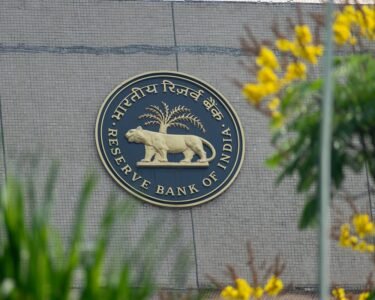![[Photo by Kim Ho-young]](https://file.mk.co.kr/meet/neds/2024/04/image_readtop_2024_242042_17120160195899694.jpg)
[Photo by Kim Ho-young]
The outstanding balance of housing-related loans at five major South Korean commercial banks?KB Kookmin Bank, Shinhan Bank, Hana Bank, Woori Bank, and NH Nonghyup Bank?decreased for the first time in 11 months.
According to industry sources on Monday, the outstanding balance of housing-related loans at the quintet stood at 536.65 trillion won ($395.9 billion) in March 2024, down by 449.4 billion won compared to a month before and ending an uptrend that was seen since April 2023. While the balance of mortgage loans increased, the balance of jeonse loans, or lump-sum deposit payment, notably decreased by about 1.8 trillion won to around 118.55 trillion won.
The fall in the overall housing loan balance seen in March 2024 was largely influenced by the sharp drop in jeonse loan balances.
The Financial Services Commission introduced a “loan transfer” platform in January 2024 that allows borrowers to transfer their mortgage and jeonse loans with banks and other financial institutions online, leading to competition and lower interest rates among banks.
Although mortgage loan transfers were also significant, with about 13 trillion won of mortgage balances moved to internet-only banks KakaoBank Corp. and Kbank in just one month, there was further momentum in jeonse loan transfers that began at the end of January 2024 in February and March.
Internet-only banks attracted borrowers by offering new jeonse loan rates in the 3 percent range in February 2024. The new jeonse loan rate at Kbank, for example, was 3.39 percent on average while NH Nonghyup Bank’s rate was 4.59 percent.
This trend continued to the following month, with Kbank‘s average jeonse loan rate at 3.62 percent and KakaoBank’s at 3.71 percent, while the major banks maintained their rates in the 4 percent range except for KB Kookmin Bank, which offered 3.83 percent. The difference in interest rates prompted fund transfers to internet-only banks, contributing to the sharp decline in jeonse loan balances at the five major banks.
Another factor contributing to the decline is a drop in demand for jeonse itself, with frauds that have been uncovered since 2023 fueling fears for home borrowers.
As of March 2024, the outstanding balance of household loans at the five major banks fell by 2.22 trillion won from the previous month to 693.57 trillion won, while savings increased by nearly 19 trillion won in just one month to 1995.28 trillion won. Demand deposits increased by 33.62 trillion won from the previous month to 647.9 trillion won.
The increase in bank savings is believed to be due to the recent activation of investment markets as financial consumers opt to invest in securities or virtual assets instead of locking their money in low-interest and stable time deposits.
By Park In-hye, Park Na-eun and Chang Iou-chung
[ⓒ Pulse by Maeil Business News Korea & mk.co.kr, All rights reserved]




